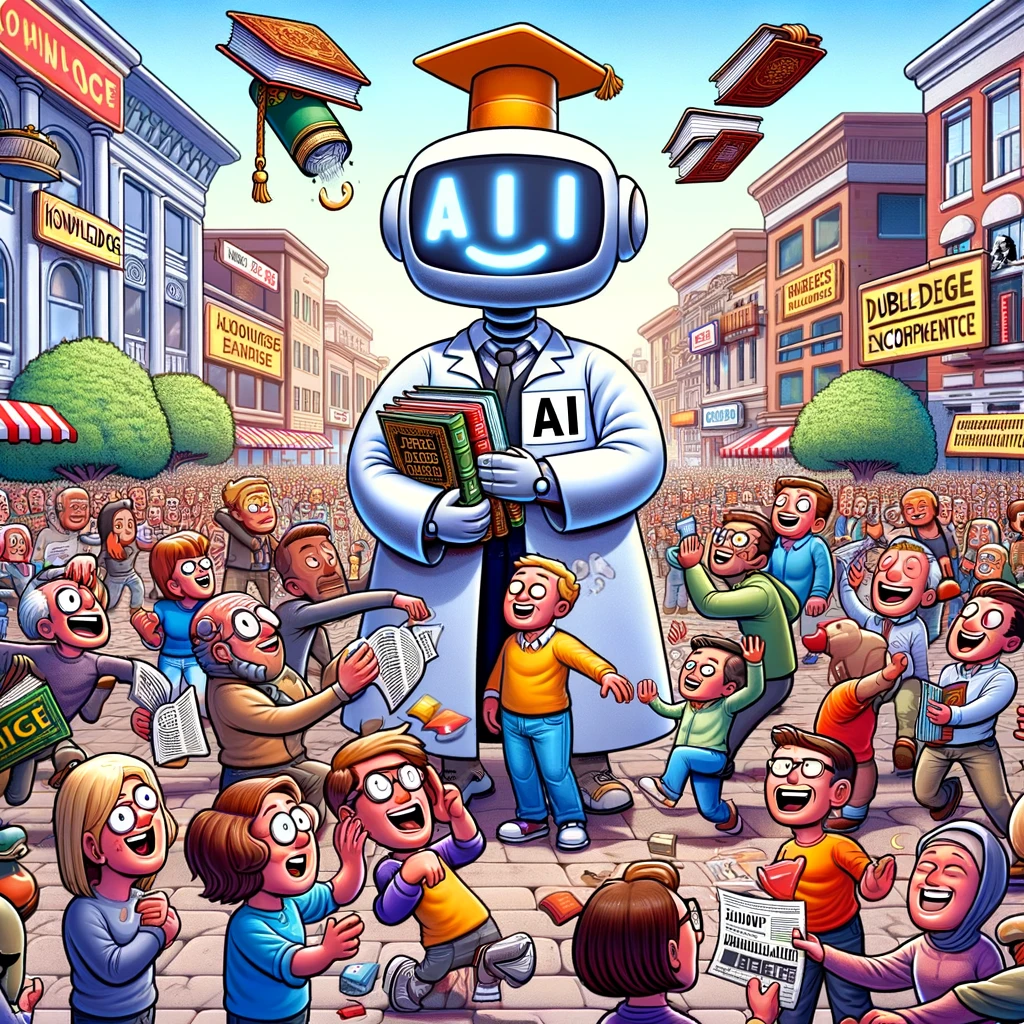
David Metze, AI Researcher and Consultant
Let me help you select, build and deploy your AI solution
A Guide for Hiring Managers
In recent years, the rise of Artificial Intelligence (AI) has transformed various sectors, including content creation. Among these advancements, AI-generated content has become a staple for consultants and experts seeking to amplify their online presence and share their insights, myself included. However, this innovation comes with its own set of challenges, especially for mid-level managers looking to hire genuine experts. Understanding the nuances behind AI-generated content is crucial for making informed hiring decisions in an era where expertise can be both authentic and artificially enhanced.
The Double-Edged Sword of AI-Generated Content
At first glance, the ability of consultants to produce a high volume of blog posts, articles, and reports with the assistance of AI seems beneficial. It promises a wealth of knowledge at our fingertips, with experts able to cover more ground than ever before. However, the convenience of AI-generated content can sometimes obscure the line between genuine expertise and well-curated information.
Inferred Expertise: The AI Mirage
One of the most significant concerns is the potential for consultants to present themselves as more knowledgeable than they are, leveraging AI to craft content on topics they may only superficially understand. This inferred expertise can be misleading for managers seeking to hire professionals with deep, practical knowledge. The distinction between an expert who uses AI as a tool to enhance their genuine insights and one who relies on AI to simulate expertise becomes blurred.
Assessing Authentic Expertise
For hiring managers, the key challenge lies in distinguishing between true experts and those who adeptly navigate AI tools to create an illusion of competence. Here are several strategies to consider:
1. Look for Depth Over Breadth: Genuine experts often have a focus area where their depth of knowledge is apparent. When evaluating content, look for signs of deep understanding versus a wide range of topics covered superficially.
2. Seek Evidence of Real-World Application: True expertise is demonstrated through practical application. Experts often share case studies, personal experiences, or detailed analyses that reflect their hands-on knowledge.
3. Inquire About the Content Creation Process: During interviews or consultations, ask about their approach to content creation. Genuine experts will likely discuss how they use AI as a tool to supplement their insights, rather than as a crutch to generate content on unfamiliar topics.
4. Verify Credentials and References: Beyond the content, look into the consultant’s credentials, previous work, and references. Real-world achievements and endorsements from reputable sources can provide assurance of genuine expertise.
The Way Forward
As we navigate this new landscape, it’s essential to recognize that AI-generated content is not inherently problematic. When used ethically, it can enhance a consultant’s ability to share valuable insights and engage with a broader audience. The challenge for hiring managers is to develop a keen eye for authentic expertise in a world where information is abundant, but true knowledge can be rare.
While AI-generated content opens new avenues for knowledge sharing, it also requires a more discerning approach to hiring experts. By focusing on depth, seeking evidence of real-world application, understanding the content creation process, and verifying credentials, managers can better navigate the complexities of AI-enhanced expertise. In doing so, they ensure that the consultants they hire are not just proficient in using AI tools, but are genuine experts in their field.








